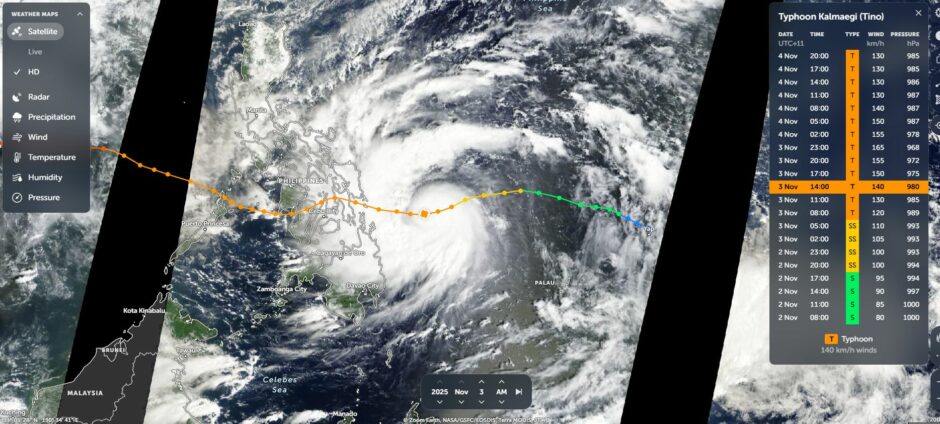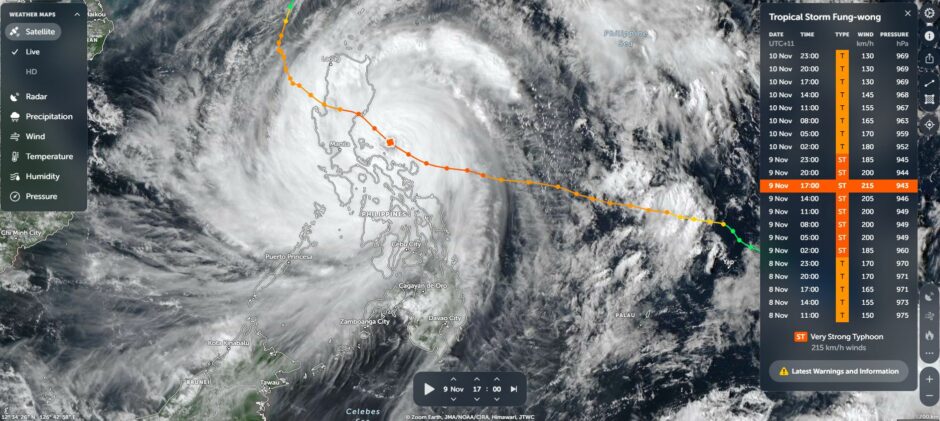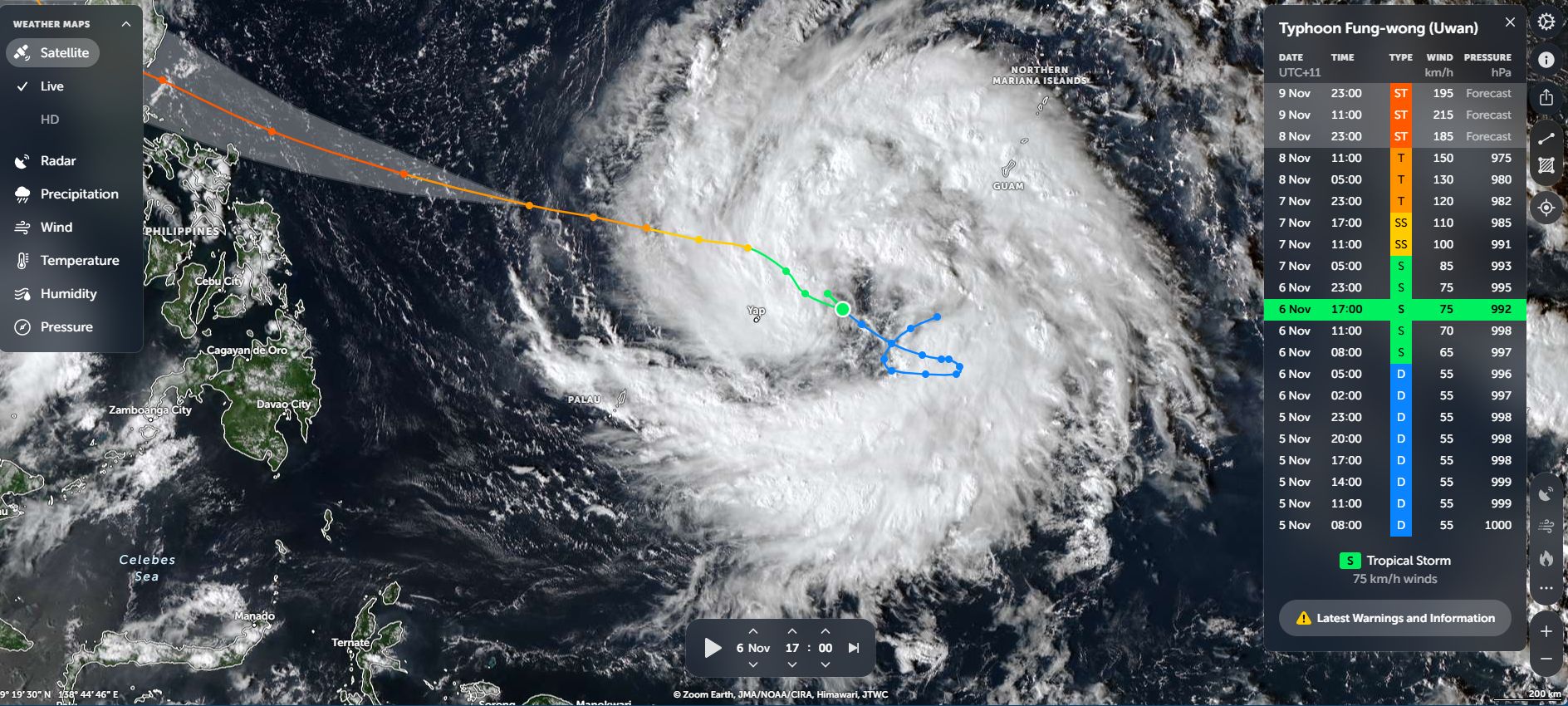The island chain of the Philippines is currently reeling under the strain of two recent typhoons within the space of one week. Almost every year, the country is struck by passing typhoons but it is rare to have two separate storm systems impact the country within the space of 7 days.
This occurred on November 4 and again on November 10 2025 as follows:
Storm 1 - Typhoon Kalmaegi
The first storm was named Typhoon Kalmaegi which was relatively modest in terms of wind strength with peak winds reaching at least 150 to 165 km/h at peak intensity. This placed the storm as a high end Category 1 to a low end Category 2 system on the Saffir Simpson Scale.
The storm made landfall near Guiuan and Tacloban. While the winds were not catastrophic, the rainfall was significant. The storm has caused major flooding and it is known that more than 114 fatalities has occurred with 127 people missing.
What made the storm worse is that the system passed over regions impacted by a recent strong earthquake and local residents had not recovered from this natural disaster. Thus, the storm has compounded local recovery efforts.
After traversing through the Central Philippines, the storm travelled east and regained its strength to reach a Category 3 storm before making final landfall over Southern Vietnam.

Storm 2 - Typhoon Fung Wong
Following on the heels of Typhoon Kalmaegi was Typhoon Fung Wong. The storm was much stronger having reached a low end Category 4 system on the Saffir Simpson Scale with winds to at least 215 to 230 km/h at the core. The storm made landfall over northern Luzon then tracked north west. After leaving the Philippines, the storm weakened dramatically to a tropical storm. By the time, the storm reached Taiwan, it was nothing more than a strong tropical storm.

The storm has caused significant destruction displacing at least 1.4 million residents and leaving 8 fatalities in its wake.
This was a large storm which expanded to over 1,600 km in width at landfall.
When combined with the recent earthquake, the three natural disasters within such a short time will have a long lasting impact across the country.
Zoom Earth (NASA) has been used to show both storms. Both storms had different impacts and both varied in size and stature.
